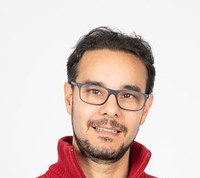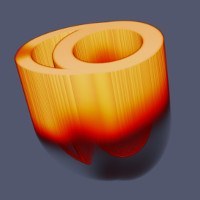Sergio Alonso Muñoz

Department of Physics
Universitat Politècnica de Catalunya (UPC)
Escola Superior d'Agricultura de Barcelona (ESAB)
Carrer d'Esteve Terradas, 8, 08860 Castelldefels, Barcelona
Tel._ +34-93-402-1009
Escola Politècnica Superior d'Edificació de Barcelona
Av. Dr. Marañon 44-50, 08028, Barcelona, Spain
Tel.: +34-93-405-4474
e-mail: s.alonso.at.upc.edu LAST PUBLICATIONS
Short CV
2019-present : Associate Professor at the Department of Physics, Universitat Politècnica de Catalunya.
2014-2019: Ramón y Cajal research associate (Tenure track).Department of Applied Physics, Universitat Politècnica de Catalunya.
2011–2014: Postdoctoral research contract. Collective research project SFB 910: Control of self-organizing nonlinear systems, funded by the German Science Foundation. Department of Mathematical Modeling and Data Analysis, German National Institut for Metrology (Physikalisch-Technische Bundesanstalt), Berlin
2007–2010: Postdoctoral research contract. Collective research project SFB 555: Complex Nonlinear processes, funded by the German Science Foundation. Department of Mathematical Modeling and Data Analysis, German National Institut for Metrology (Physikalisch-Technische Bundesanstalt), Berlin
2005-2007: Postdoctoral research contract. Marie Curie Research training network: Unifying principles in non-equilibrium pattern formation, Department of Physical Chemistry, Fritz-Haber Institute of Max-Planck Society, Berlin.
2001-2004: PhD in the Advanced Physics program. PhD thesis title: Propagation of waves in excitable media under spatio-temporal forcing. Department Structure and Constituents of Matter, University of Barcelona.
1999-2001: Substitute assistant professor. Department Structure and Constituents of Matter, University of Barcelona.
1994-1998: Degree on Physics. University of Barcelona.
Research Interests
Modeling in Cell Biology

Computational Cardiac Modeling

Theoretical Nonlinear Science
Spatially extended non-linear systems are typically described by partial differential equations. It permits the study of linear instabilities and different types of pattern formation in such non-linear systems. The combination of non-linear terms with different instabilities together with spatial interactions may produce novel mechanisms of pattern formation. Multi-scale problems where two instabilities appear simultaneously in a co-dimensional point at different scales can be studied and compared with experimental results in non-linear chemical systems, e.g. the Belousov-Zhabotinsky reaction or the catalytic CO oxidation in metal surfaces.
Share: